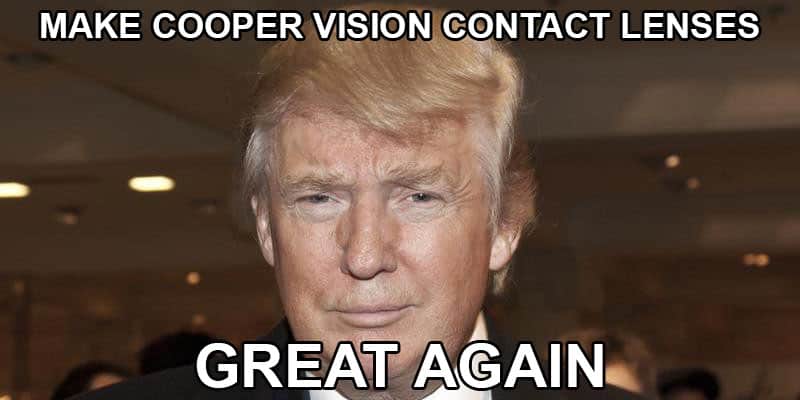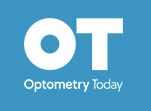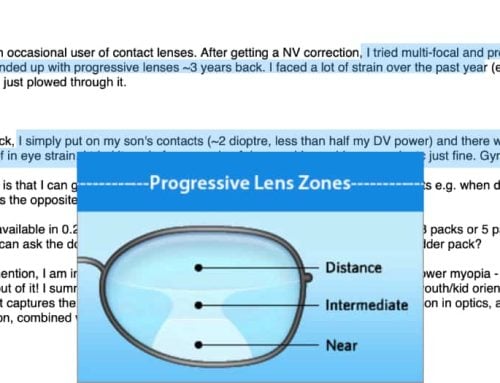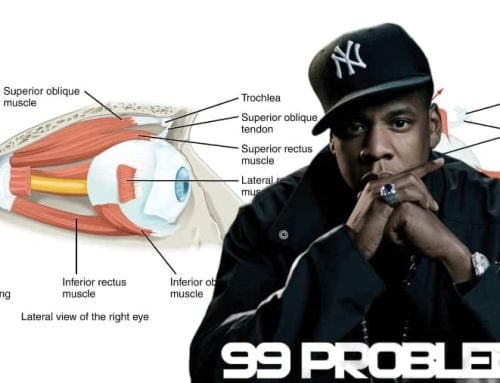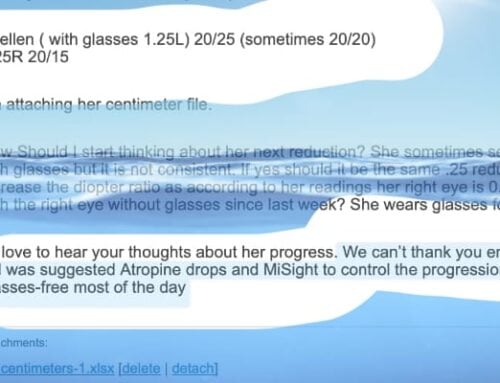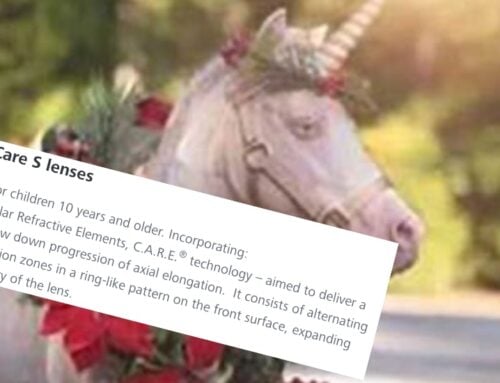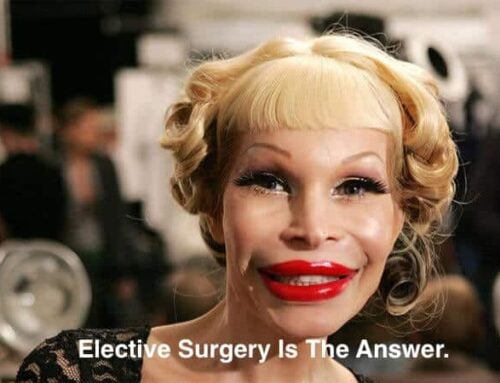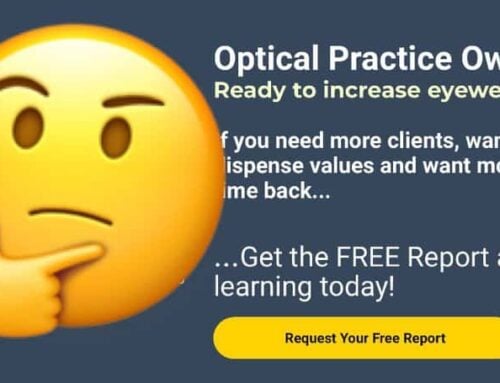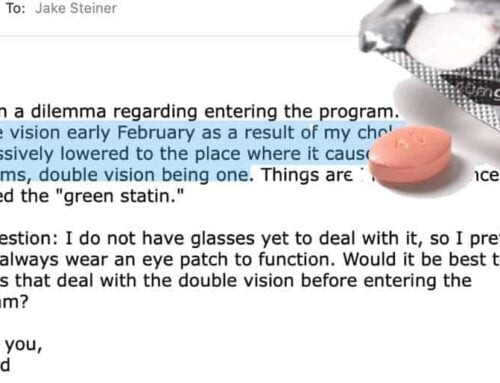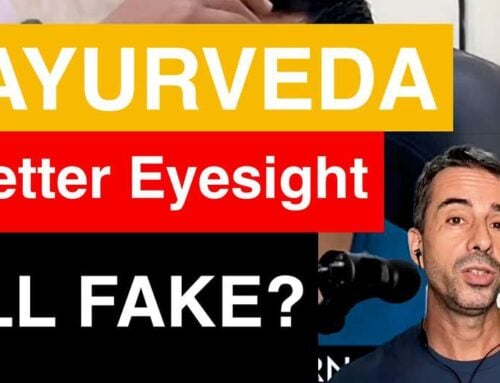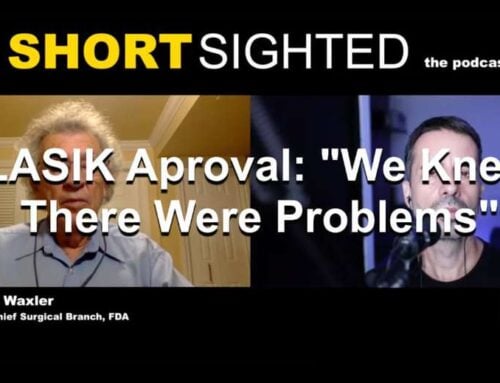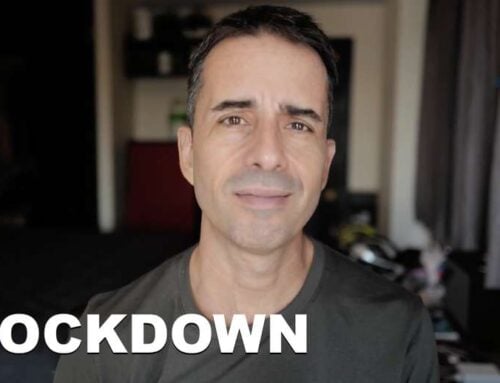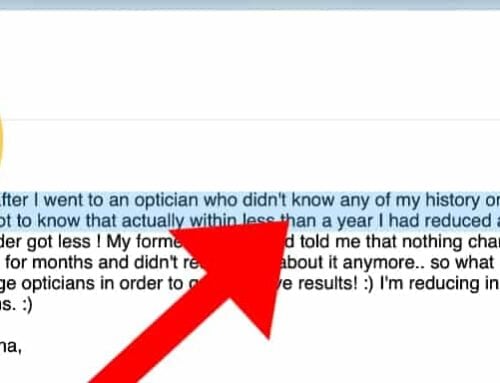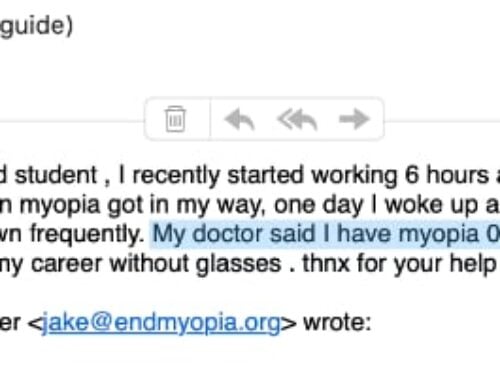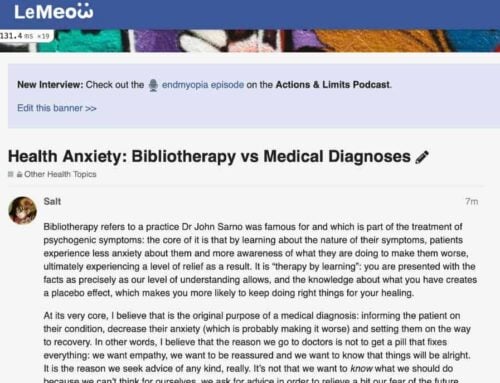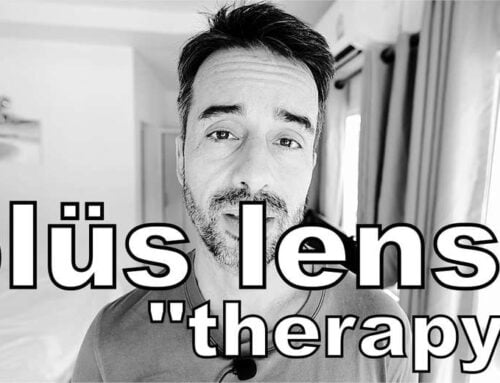Blog header image contains no political preference innuendo.
Maybe you wonder … where does all the optometry disinformation come from? Why do doctors tell you plain and utter nonsense, things you can conclusively disprove with a quick Google scholar search?
They get it from people they trust, established “leaders” in their industry.
If you don’t read much optometry industry “news”, you are spared a lot of head shaking. Your darling host Jake literally has an appointment for Monday, for an osteopath neck adjustment, not impossibly due to consuming an excess of optometry industry news.
Some of the press release copy-pasting that passes for “medical treatment news”, doesn’t leave much room for nuanced ideas about various intentions.
But hey, I’m a capitalist too. It’s not a bad thing, especially if you enjoy myopia the way you look forward to the next iPhone or Nike shoe or whatever. The guys at CooperVision definitely have you covered, if you want some solid lens marketing and myopia treatment advice.
Which is the subject of today’s episode of …
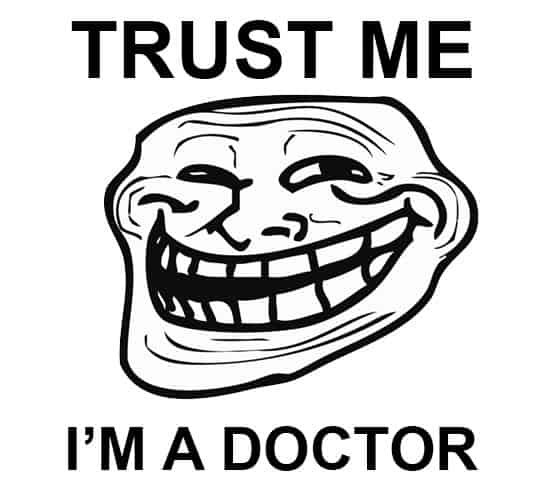
Myopia “has the potential to become a global epidemic” if data predictions reported in recent research are true, CooperVision’s vice president for global professional and clinical affairs, Dr Gary Orsborn told OT.
Potential, eh? It’s been a global epidemic for a few decades.
Referencing research published by the Brien Holden Vision Institute that reported an estimated five billion people will be myopic by 2050, Dr Orsborn said: “Myopia is a leading cause of vision impairment and with prevalence growing so rapidly, it is a major concern.”
For Dr Orsborn, it is important for research to continue to explore why myopia prevalence is increasing at such a sharp rate because there are still many unanswered questions. “We need to further understand why it’s happening in order for us to be able to delay onset and for suitable management options to be established to slow it down,” he said.

Heyyy there, late-to-the-party. Some of your compadres already figured this one out. Recently. Or less recently, i.e. sometime in the 16th century. And not just that, some of your competition already patented a usable approach to deal with it.
Who hired this guy, anyway?
Economic impact
Dr Orsborn pointed out that increased myopia prevalence is not restricted to developing countries, nor China or Asia, “where early research first detected the issue.” It is a worldwide problem, he stressed, citing research that found myopia has more than doubled over the last 50 years in the UK alone.
Highlighting the associated implications that growing myopia prevalence can have following vision impairment, Dr Orsborn referenced increased retinal detachment, maculopathy, cataracts and glaucoma, which could have “a huge economic impact regardless of the country.”
“Even in some of the wealthiest nations, the economies will lose billions of dollars in productivity,” he said.

Wake us up when you’re past the press release boiler plate written in the 80’s?
You know countries like Singapore already have myopia in their top three biggest health concerns, and established specific agencies to deal with just this topic. And … ah, never mind. Go on, regale us with some more news.
Discussing what practitioners can do to help minimise myopia progression, Dr Orsborn emphasised research that has identified a correlation between the length of time a child spends outdoors to the delayed onset of myopia. “In light of this research, practitioners can certainly play an advisory role in educating parents and encouraging them to make sure their child spends more time outside,” he said.
However, once the onset of myopia has begun the approach that the practitioner should take will change, Dr Orsborn pointed out, explaining that an optical or pharmacological approach can be taken for treatment.

What now?
So he says, sure by all means, go outside more. But then come into the office and buy some glasses. Or contact lenses ideally, because that’s what we sell here.
Expanding on the optical approach, he explained that this involves the optometrist introducing a treatment that is able to change the focus of light and reduce progression, adding that this could be spectacles or contact lens-based.
While Dr Orsborn pointed out that studies are currently underway to investigate the most effective treatment option, he believes that when selecting a treatment, practitioners should keep in mind that they are dealing with younger patients.
“Treatment means having a type of correction on them all waking hours,” he said. And for this reason, contact lenses could play an important role in treatment, he added, identifying that “children struggle to wear spectacles all day.”

All. Waking. Hours.
In other news, oil sheik urges west to buy more SUVs.
“Contact lenses do not disrupt distance vision and are like you are not wearing anything at all – that is our goal for any type of contact lens correction,” he said.
In considering contact lenses as a treatment option, Dr Orsborn confirmed that much attention is currently being paid to two types of lenses – ortho-k and dual focus soft contact lenses.
He explained: “There are many clinical trials underway into both ortho-k and myopia control soft contact lenses. This is certainly where I think there will be some positive breakthroughs, especially in introducing treatments in the most convenient soft lens modality, one-day lenses.”
Which we sell.
Highlighting the dual need for education and treatment to be considered in partnership when tackling myopia long-term, Dr Orsborn emphasised that as the world’s third largest contact lens manufacturer, “CooperVision is committed to both product development and partnering with practitioners and associations to establish education that can be applied in everyday practice by eye care professionals.”

….
This post, to highlight why you may run into the occasional optometrist who’ll tell you things like what you just read above. The propaganda comes from the people who sell the things that make the money that keeps the lights on. You too trusted your parents, who fed you and gave you your allowance.
Which again, is totally fine.
Cheers,
-Jake

